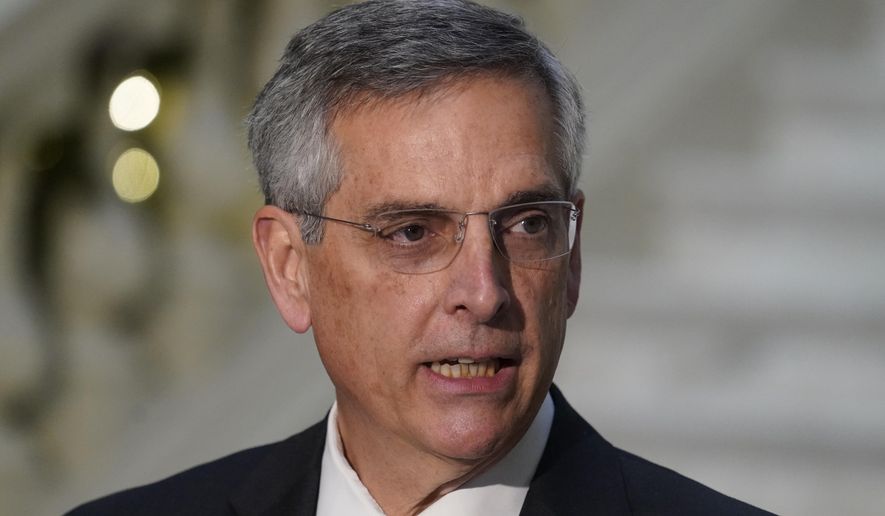ATLANTA — Georgia’s top elections official on Wednesday called for an end to the state’s practice of allowing voters to cast absentee ballots without justification even as his office again dismissed claims of widespread fraud during the November election.
Republican Secretary of State Brad Raffensperger, who has been slammed by President Donald Trump for his handling of the presidential election, told a state legislative committee that no-excuse absentee voting “makes no sense” when the state offers weeks of in-person early voting.
“It opens the door to potential illegal voting,” he said at a hearing before the state House of Representatives’ Governmental Affairs Committee.
Republicans in Georgia’s state Senate had previously said they wanted an end to no-excuse absentee voting.
At the same hearing, a member of Raffensperger’s office dismissed allegations of voting fraud made by the Trump campaign, saying investigations did not uncover problems that would have changed the outcome of the presidential race in Georgia. Joe Biden beat Trump by roughly 12,000 votes in the state, with Biden receiving a significantly greater share of the record number of absentee ballots than the Republican president.
Democrats on the committee questioned the move to end no-excuse absentee voting. Rep. Rhonda Burnough, D-Riverdale, said it would disenfranchise voters “because they wouldn’t want to come out and stand in line.” Some voters waited for hours to cast ballots during the state’s June primary, which became a national embarrassment.
“I do think that some of the reasons that we’re having these committee meetings is that a lot of folks, their preferred candidate was not selected,” state Rep. Renitta Shannon, D-Decatur, said. “Trump did not win the election.”
Georgians have been able to vote absentee without an excuse since a Republican-controlled legislature approved the practice in 2005, though it was not widely used until this year after the pandemic struck.
Ryan Germany, general counsel for the secretary of state’s office, said while there isn’t widespread fraud in absentee voting, the results of in-person voting are easier to trust.
“I think what we want to set up from an election system is one that everyone has confidence in,” he said.
Raffensperger has previously said he supports the use of photo identification to verify absentee ballots instead of the current practice of relying on signatures. He reiterated that on Wednesday.




Please read our comment policy before commenting.